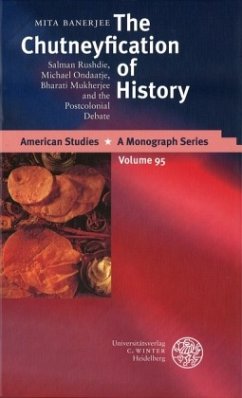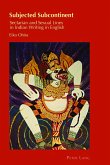Colonizers are driven into a state of panic by the circulation of a 'humble' chapati; a young girl's setting her family's shoes on fire seems comparable to a nuclear attack; a sleepwalker kills two hundred and eighteen turkeys just to be rid of them. Are these events of historical significancei The works of Salman Rushdie, Michael Ondaatje, and Bharati Mukherjee seem to suggest that this question might be answered in the affirmative. The anecdote fleshes out what historical facts must elide in their abstraction. This study proposes that the fiction of all three authors can be read through Rushdie's metaphor of the chutneyfication of history. In line with the lighting of shoes and the murder of turkeys, the chutney's presence is a playful, unhistorical one; a presence, however, which Rushdie, Ondaatje, and Mukherjee proceed to turn into an historical agent in its own right, in a fusion of postmodernist and postcolonialist politics. Contrary to the claim that revolutions can be made by bread alone, this study suggests that this postmodernist agency of postcolonial aporia may in fact be self-defeating, and that the rejection of communal resistance which emerges in its wake must be considered in a much more critical light.
Bitte wählen Sie Ihr Anliegen aus.
Rechnungen
Retourenschein anfordern
Bestellstatus
Storno





